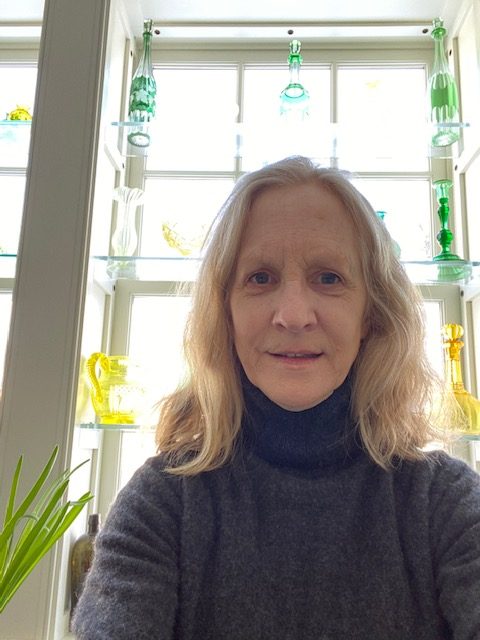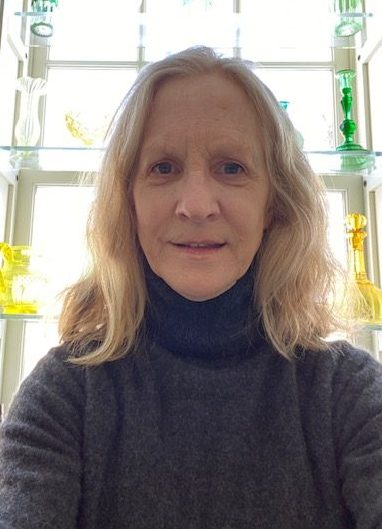During my medical career, my writing was confined to academic journals, book chapters
and grant applications. I never imagined writing for any other reason. However, within weeks of
my early retirement, I began recording the details of pivotal events from my medical
experiences. I did not understand at the time that I was storing the information for when I was
prepared to analyze those events, my personal response to them and my decision to leave
academic medicine. Now I’m ready to respond to the urge to explore them through writing.
Is there an author who has most profoundly influenced your work?
Charlotte Brontë’s Jane Eyre is the book that has most profoundly influenced my writing.
Brontë described pivotal childhood experiences which deeply affected her protagonist and
formed her character’s moral framework. Jane’s decision to refuse marriage to Mr. Rochester
because he was still married to the madwoman locked up in his house, provided a literary
example of how to act with moral courage against injustice. I plan to examine my own moral
development and how it has influenced my career and life decisions.
Why did you choose Stonecoast?
I am lucky to have recognized and responded to certain epiphanies during my life, which have led to greatly rewarding outcomes. One of those “Aha” moments arrived when I read the online description of Stonecoast’s WISE (Writing for Inclusivity and Social Equity) program, which “offers passionate students an intensive MFA in creative writing that is deeply connected to the most urgent issues of our time”. This resonated with me, as I explore ethical situations that I have faced and how they jived with or clashed against institutional priorities in the delivery of patient care. I am gratified that Stonecoast students and faculty have fully engaged and supported me as I question medical systems, physician attitudes and how they affect their patients.
What do you hope to accomplish in the future?
I hope to create a collection of personal essays and memoir that explores and explains my
decision to leave my traditional medical career. It still troubles me that I acted on that decision,
despite my fascination with human disease, my appreciation for the art of medicine and, above
all, my affection for my patients.
I recently received my Maine medical license. Once the overwhelming demands of the
COVID pandemic on the public health system ease, I hope to work within the Maine medical
educational system to establish a human rights program that trains and engages volunteer
physicians in the evaluation of persecuted immigrants seeking asylum in this country.
If you could have written one book, story, or poem that already exists, which would you choose?
I have three. Jane Eyre is one, per my comments earlier. In the non-fiction genre, I would
select Isabel Wilkerson’s The Warmth of Other Sons; Wilkerson’s ability to convey the
motivation for and the impact of an entire movement of people and culture through personal
narratives inspires me to tell the story of just a few doctors and patients that will highlight
systemic issues in the institution of medicine. I also love Seamus Heaney’s poem, Digging,
because it depicts the writer’s desire to wield his pen instead of a shovel, the expected tool in his
agrarian family; I desire to wield my pen instead of a stethoscope.
A Study
by Mary White
I’ve noticed that when you read a book, you place your left forefinger against your
cheek and then place your left middle finger below your lower lip, as if to support it. Your pose
is different when reading a document: then, you press your lips with the tips of the three
middle fingers of your left hand, as if reacting to bad news.
In conversations, you frequently adjust your glasses by raising the left bar with your left
hand, even if the action does not correct anything.
When you are at the toilet, directing the flow with your right hand, the fingertips of your
left hand lightly caress your left shoulder (if you are shirtless) or the nape of your neck (if you
are dressed).
Often you will track down an errant curl just behind your ear; you capture it between
your fingers then coil it around one finger. This repeats: capture and coil.
You wipe your mouth after every bite of food, as if afraid to leave the slightest vestige
behind. This creates an anxious atmosphere to dining; bite and wipe, bite and wipe.
You unbutton the cuffs of your Brooks Brothers shirt, stick your left arm—half bent—in
the air, while you roll up the shirtsleeve to a constricting 2 or 3 inches above the elbow. You
follow this by rolling up the other sleeve. Later, you unnecessarily secure the tight rolls again.
You put into place what was already in place.
From this garden of mannerisms that I grow to know well, a weed emerges.
At dinner, I ask, “What are you doing?” You look up, expressionless. “You’re pushing
your hand down the front of your pants.”
“I’m not doing anything,” you scowl and go back to eating.
I assume that you aren’t aware of how this behavior looks to others. I bring it up again.
“It looks like you’re checking if you’re still intact,” I observe.
“What,” you say flatly, with feigned innocence.
“What you’re doing, tucking your shirt deeply into your pants. It looks like you might be
taming an erection.” We stare at each other. Then, you shrug.
One day, when we meet in your office, surrounded by other men and women at the
table, I notice you do it there too. You hold the left side of the waistline of your pants and then
probe deeply, with your right hand. It is too far down, inappropriately deep. Alarmed, I force a
noisy closing of my notebook and loudly clear my throat. I scan the faces in the room; did
anyone notice?
Maybe people don’t notice a single “adjustment”. But I witness it in private and in
public; it is uncomfortable and embarrassing.
I realize now what it represented. In poker, they call it a tell—an unconscious action that
betrays an attempted deception.

Mary is a retired physician, who left the practice of medicine at the age of 41. Since
2005, she has volunteered as a medical evaluator of people seeking asylum for persecution or torture in their home country. And since 2003, she has volunteered in Haiti, both before and
immediately after, the 2010 earthquake. Currently, she is a board member of a school for disabled children in Haiti.
Her writing consists of memoir and personal essays, both exploring the personal and
institutional factors which led to her early departure from medicine, which had been her passion and life’s calling.
She recently moved from New York City to the island of North Haven, Maine with her
two Havanese dogs. She has two grown daughters who live in Montana and Iowa.
